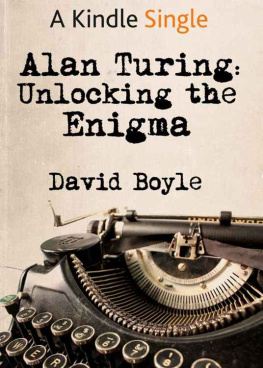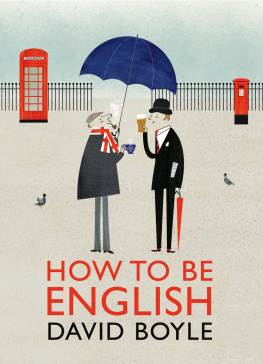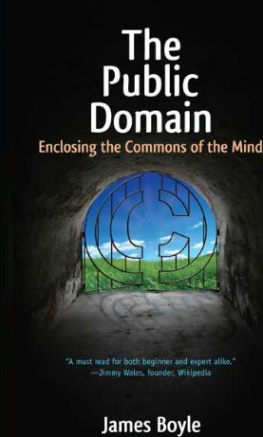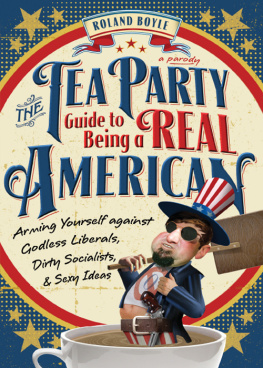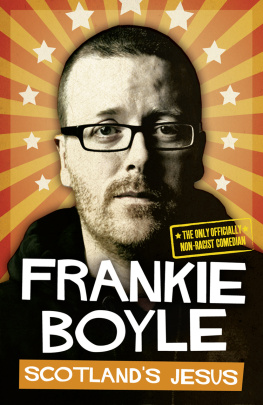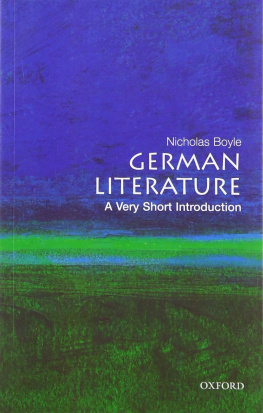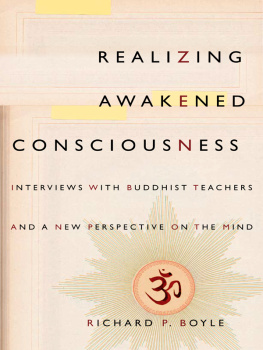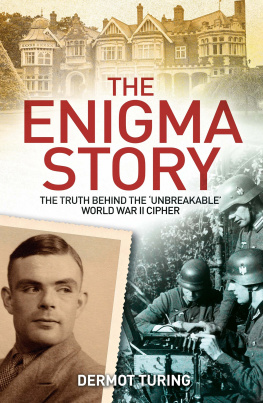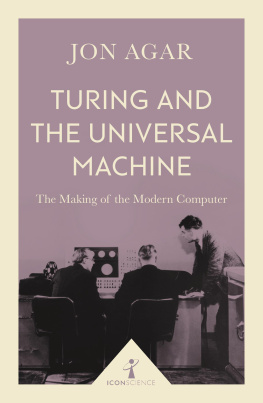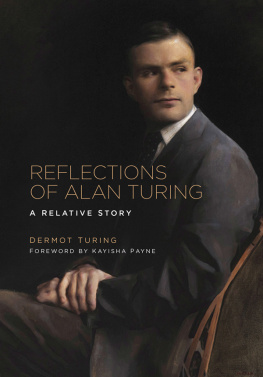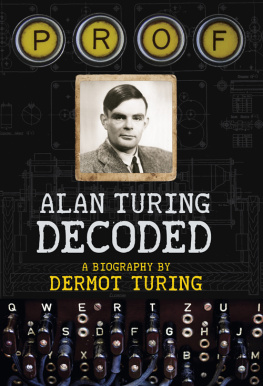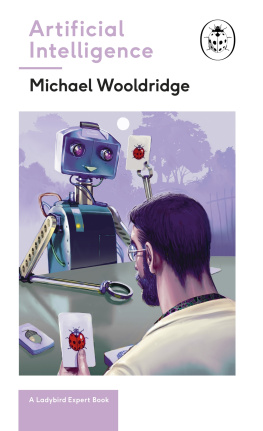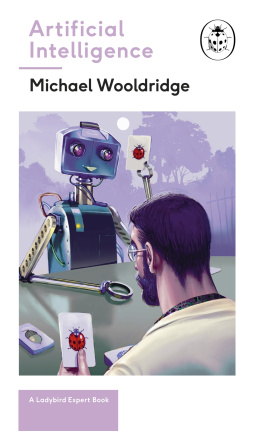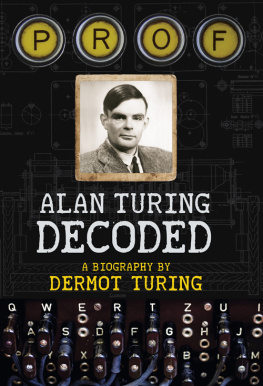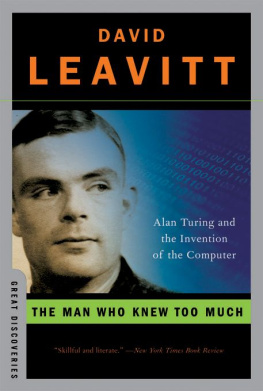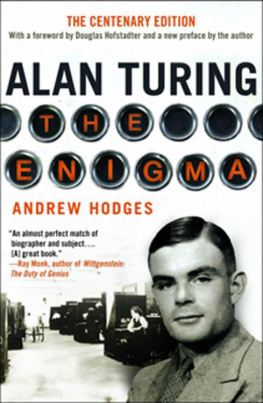Alan Turing: Unlocking the Enigma
David Boyle
David Boyle 2014
David Boyle has asserted his rights under the Copyright, Design and Patents Act, 1988, to be identified as the author of this work.
First published 2014 by Endeavour Press Ltd.
Table of Contents
Prologue
Be it enacted by the Queen's most Excellent Majesty , by and with the advice and consent of the Lords Spiritual and Temporal , and Commons , in this present Parliament assembled , and by the authority of the same , as follows : Statutory Pardon of Alan Mathison Turing .
Introduction to the draft law, introduced into the House of Lords, July 2013
It was unusually full for a Friday in the House of Lords as the peers gathered just before lunch on 19 July 2013. There, in the venerable red and gold of the Westminster debating chamber, Lord Sharkey the former advertising executive John Sharkey proposed a private members bill to give a statutory pardon to one of Britains greatest scientists, Alan Turing.
Present in the chamber to hear him were members of Turings family, and at least one former colleague of his at the top secret code breaking establishment at Bletchley Park, where the Nazi Enigma code had been broken during the Second World War. Turings reputation as one of the most brilliant scientists of the twentieth century has grown so much, said Sharkey, that it now seemed extraordinary that he had been hounded for his homosexuality, and in the series of events leading to his suicide in 1954. More than half a century had gone by since those events, and it was time for the nation to make some amends.
The original campaign for a pardon was the idea of computer scientist John Graham-Cumming, who had begun by calling for an official apology for the way Turing was treated after his conviction. He wrote to the Queen to ask for Turing to be awarded a posthumous knighthood. The campaign won widespread support and, by 2009, Prime Minister Gordon Brown had agreed to apologise. While Mr Turing was dealt with under the law of the time and we can't put the clock back, his treatment was of course utterly unfair, he wrote in the Daily Telegraph . I am pleased to have the chance to say how deeply sorry I, and we all are, for what happened to him.
But the campaigners wanted more than just an apology; they wanted a proper pardon. The government refused on the grounds that it would set a precedent, even though pardons had recently been given to 18 former terrorists under the Northern Ireland Agreement and 304 of those shot for cowardice during the First World War. All that could be done, in the face of that refusal, was to change the law.
Sharkey was a Liberal Democrat peer and he had two interests in taking the campaign further. He had been campaigning for a blanket pardon for all the remaining 16,000 living victims of the Labouchre revision to the Criminal Law Amendment Act back in 1885, which had first criminalised homosexual acts, and tried to force the issue in Parliament in 2011. It gave pardons to all those still living who had been convicted, but it excluded those who had died, like Turing and another 59,000 people. Sharkey was advised that the best way forward to extend this would be to engineer a pardon for one of the very greatest of those convicted.
Sharkeys second interest was that he had always been a great admirer of Turing, having studied mathematics at university under Robin Gandy, Turings great friend and his only PhD student.
So the scene was set for an unusual event.
My Lords, said Sharkey, rising to his feet. On 6 August 1885, late at night in the Commons debate on the Criminal Law Amendment Act, Henry Labouchre suddenly produced an amendment to the Bill before the House. This amendment criminalised homosexual acts. The only discussion was over the penalty to be imposed. Labouchre had proposed a maximum of one year. Sir Henry James suggested two years and Labouchre agreed. The whole debate had four speakers, including Labouchre. It lasted four minutes and consisted of a total of 440 words, but 75,000 men were convicted under this amendment, and Alan Turing was one of those.
But it was already clear by then that, whether Sharkey succeeded or failed, Turings reputation was rising all over the world, and he was increasingly prominent in so many of the most important debates of the early twenty-first century about the nature of humanity, the possibilities of artificial life, the meaning of human endeavour, and the direction of progress.
Turing had important things to say on all of these, and he is probably best known for his wartime code-cracking, but he ought perhaps to be remembered more for his pioneering contribution to the very beginning of information technology. Partly he had been overlooked until now because of a contention between the supporters of rival American and British claims to have originated computing, and partly because of the self-effacing personality of the man himself. It was also partly because of his early death, two weeks before his 42nd birthday.
But that is changing. Alan Turing appears to be becoming a symbol of the shift towards computing, not least because of his attitude of open-minded defiance of convention and conventional thinking. Not only did he conceptualise the modern computer imagining a simple machine that could use different programmes but he put his thinking into practice in the great code breaking struggle with the Nazis in World War II, and followed it up with pioneering early work in the mathematics of biology and chaos.
As if that wasnt enough, he has now assumed the status of a martyr of the modern age, for his logic, his rationalism and his unashamed homosexuality, and for the way he was treated as a result by the forces of the law and of course because this appears to have led to his suicide.
Turing himself, as one might expect, was a strange mixture of character traits and paradoxes. He was confident in his own abilities, amusing and witty with friends, yet shy and uncertain in company, except with the few people he trusted. He relied on relentless logic, yet also managed an almost mystical ability to intuit mathematical proofs. He combined a rigid clarity and scepticism about human specialness, but he was also fascinated by fairy tales and was famously obsessed with the Disney film Snow White and the Seven Dwarfs .
The overwhelming feeling about Turing, from reading accounts of his life and his mother wrote a detailed tribute after his death is just how English he was. Many of his fellow countrymen failed to understand him at all, and he worked part of his career with American and German mathematicians at Princeton University, but he was deeply English in his sheer practicality, for the literalism with which he turned intellectual ideas into practical projects. He was a true successor to the great British empiricists, John Locke and David Hume, and the exclusion of every consideration except sense data. It is a theme that keeps returning in his life and work.
My own interest in Turing began when I was writing about the changing meaning of the word authenticity, and Turing was a particularly paradoxical figure in this debate. He remains the hero of those who believe that technology will rapidly replace the purely human. Yet there are elements of Turings multi-faceted personality that it would be possible to hail on the other side his belief in human possibility, his tolerance and above all his romanticism: one of his closest friends was the future fantasy writer Alan Garner, later the author of The Weirdstone of Brisingamen .
But I have always been interested in Turing for another reason too. He was born in the neighbourhood where I was brought up, a Georgian enclave near Paddington Station in London, known for its plane trees, its dubious Edwardian night life and for its network of canals, earning it the title Little Venice.
Next page
